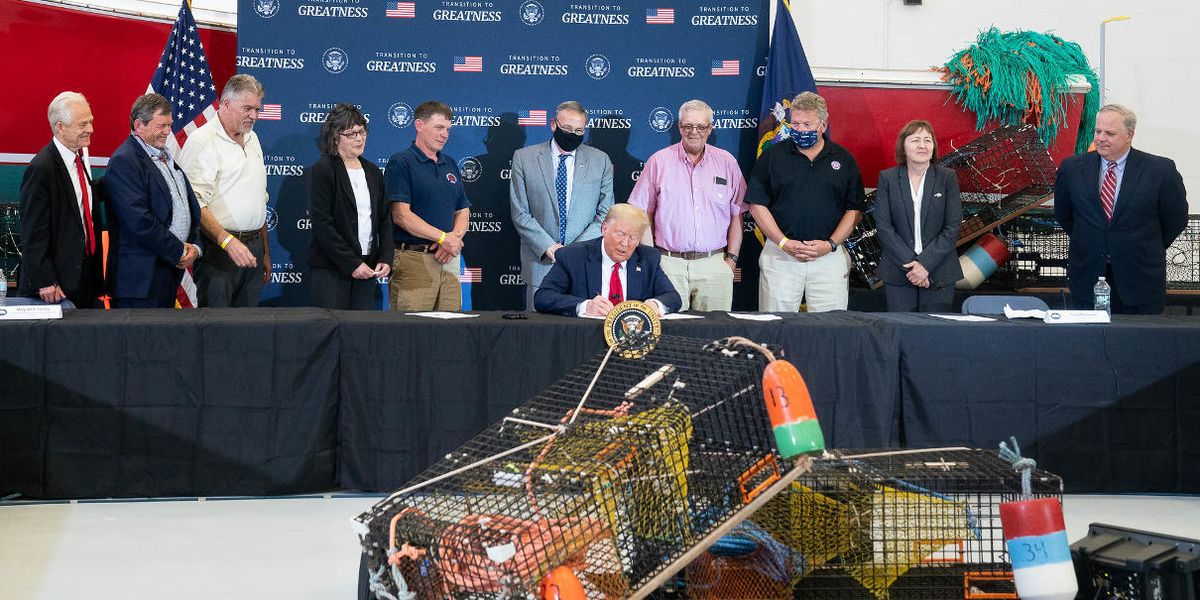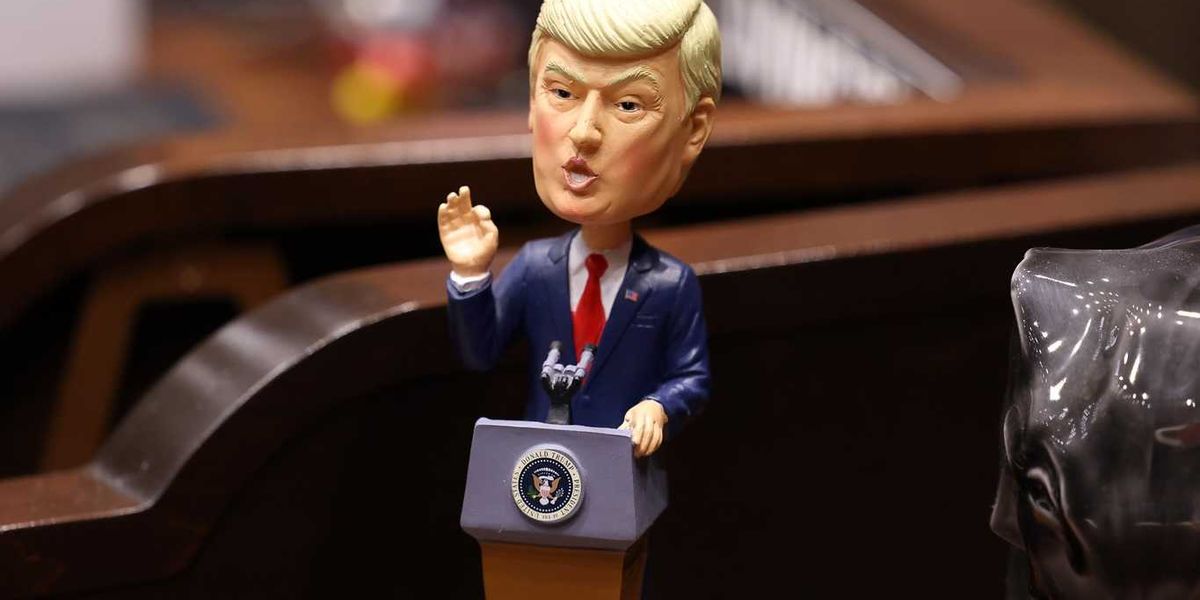
As the nation reels, Trump Administration continues environmental policy rollbacks
Just beneath the headlines, politics and nature are whipping up a few more storms.
There's a whirlwind of distressing news these days. Rage over racism; fretting over finance; and coronavirus may just be getting its boots on. It's all a perfect time to unleash some quiet mayhem on the environment.
It's all hard to write about, and I'm sorry, I know it's equally hard to read about. But it's even more impossible to ignore.
The Trump Administration's war on environmental regulation might draw a little more attention in normal times. Here are a few things, flying under the radar, that will have ramifications for years.
In early June, Trump launched a frontal attack on the National Environmental Policy Act (NEPA). NEPA is a 50-year-old, profoundly un-sexy law that generates tons of paperwork and keeps scores of attorneys gainfully employed. It's also a cornerstone of environmental law—the statute that requires an Environmental Impact Statement for federally-funded development projects, including pipeline and construction, airport expansion, and more.
Trump's new executive order enables agency heads to ignore key laws, including NEPA, the Endangered Species Act, and the Clean Air and Water Acts if they imperil our economic "emergency." Agency heads, like former coal lobbyist Andrew Wheeler at the Environmental Protection Agency; former oil lobbyist David Bernhardt at the Interior Department; and William Perry Pendley, a serial litigant against government agencies who is now the interim boss of one, Interior's Bureau of Land Management (hereinafter known as the other BLM).
At a time when ocean scientists are warning that a dramatic increase is needed in establishing marine protected areas, Trump is taking aim at the first such zone in U.S. Atlantic waters. The Northeast Canyons and Seamounts Marine National Monument, created by President Obama in his last year in office, set a unique area in the Gulf of Maine off limits to commercial fishing. The monument area is a hotspot for several endangered whale species, and not of particularly high interest to New England's beleaguered fishery.
When the administration moved to re-open the Monument to fishing, both Maine's governor, Democrat Janet Mills, and Republican Senator Susan Collins objected.
The move may be part of a larger strategy to undermine the Antiquities Act, the 1906 law that allows the president to bypass Congress in protecting areas of natural or cultural value. President Trump had already undercut the creation of two monuments, President Clinton's Grand Staircase-Escalante and President Obama's Bears Ears, at the behest of mining firms.
Should Trump lose his re-election bid in November as current polls suggest, the imagination runs wild with the prospect of "midnight rules," the last-minute executive orders that mark the end of any recent presidency, including President Obama's Bears' Ears designation and Bill Clinton's Roadless Rule, which put millions of acres of pristine National Forest off limits to logging.
Even if President Trump is a one-termer, his impact on environmental issues will outlive most of us.
With Sen. Mitch McConnell's rule over a Republican Senate, Trump is on a record pace for filling federal judgeships, including two Supreme Court seats.
Environmentalists have long valued the courts as vital insulation from powerful, well-financed regulatory challenges. But the balance of lifetime appointments in the federal courts has flipped. Even if Joe Biden becomes the 46th President on January 20, President Trump's impact on environmental politics will endure.
As a rule, even those cast as the Darth Vaders of environmentalism choose a token issue on which to shine. Reagan Administration Interior Secretary James Watt, zealous friend of drillers and miners, advocated for whales. Senator James Inhofe, bête noire of climate change advocates, fought to protect sea turtles. In the eight environmentally benighted years of President George W. Bush and Vice President Dick Cheney, Bush declared four new, sprawling marine monuments in the Pacific.
So nobody's perfect. Not even those remembered as seemingly perfect environmental villains.
Maybe until now.
Peter Dykstra is our weekend editor and columnist. His views do not necessarily represent those of Environmental Health News, The Daily Climate or publisher, Environmental Health Sciences.
Contact him at pdykstra@ehn.org or on Twitter at @Pdykstra.
Banner photo: President Donald Trump signs a proclamation "Modifying the Northeast Canyons and Seamounts Marine National Monument" Friday, June 5, 2020, in Maine. (Credit: The White House)













